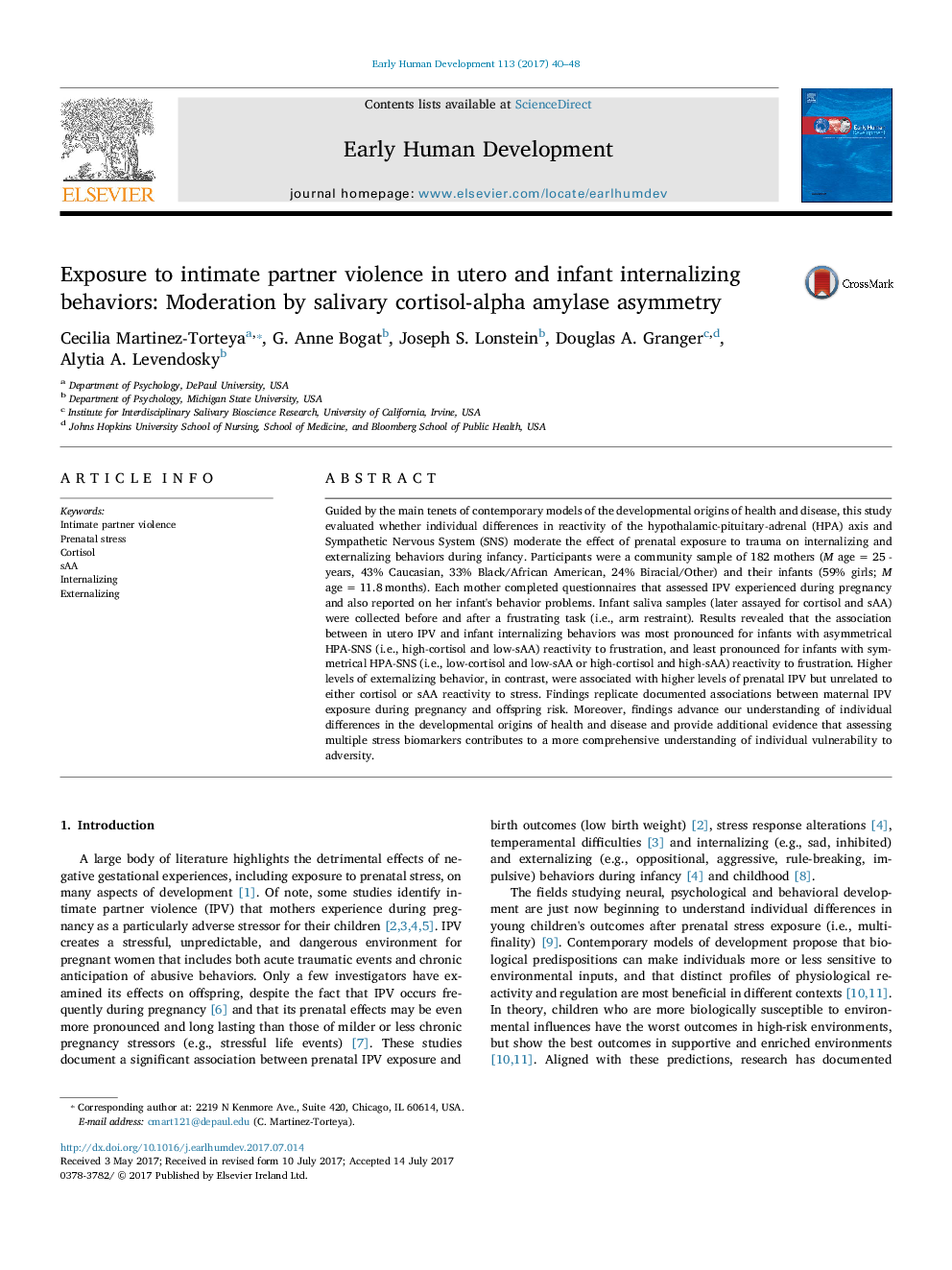ترجمه فارسی عنوان مقاله
قرار گرفتن در معرض خشونت شریک صمیمانه در رفتارهای داخلی و بیرونی نوزادان: مداخله با عدم تقارن کورتیزول و آلفا آمیلاز بزاقی
عنوان انگلیسی
Exposure to intimate partner violence in utero and infant internalizing behaviors: Moderation by salivary cortisol-alpha amylase asymmetry
| کد مقاله | سال انتشار | تعداد صفحات مقاله انگلیسی |
|---|---|---|
| 130016 | 2017 | 9 صفحه PDF |
منبع

Publisher : Elsevier - Science Direct (الزویر - ساینس دایرکت)
Journal : Early Human Development, Volume 113, October 2017, Pages 40-48

